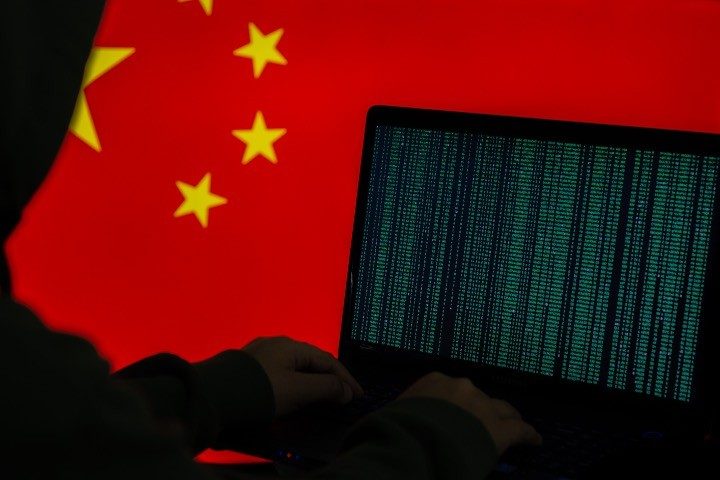
Has America already lost the next major war?
As in life, change is a perpetual constant in warfare, and the pace of change is faster than ever before in this modern era due to the exponential advancement of technology.
Given the major role that the internet, artificial intelligence, and related technologies play in contemporary human affairs, it’s almost certain that cyberwarfare will be an indispensable aspect of any future conflict between two superpowers. Everything from hacking to propaganda to the wholesale shutdown of power grids is sure to be fair game.
But in such a war, would the United States be at a disadvantage to Beijing?
This week’s nationwide AT&T service outage, which was comparatively brief yet prompted enormous alarm throughout America, raises obvious questions about how a much-more sustained and penetrative outage orchestrated by China or another rival power would affect the populace.
The AT&T cellular network outage began Thursday at 4:00 a.m. EST. It primarily impacted AT&T customers in major cities such as Houston, Atlanta, Dallas, and Los Angeles, but reports of disruptions came from across the country.
Many AT&T users were unable to make calls, send texts, or use data. Some experienced problems with internet connectivity on their mobile devices and home internet service. The outage also reportedly caused some disruptions to 911 calls in certain areas, prompting warnings from authorities.
In total, the outage lasted for several hours, with most users regaining service by around 3:30 p.m. EST. Initially, there was speculation about a cyberattack being the cause, but AT&T later clarified that the outage was due to a “software update” that was not properly applied during their network expansion process. The outage sparked criticism of AT&T’s infrastructure and network reliability. Federal agencies also launched investigations into the cause and potential impact of the outage.
Whether or not AT&T’s claim of a software update being the cause is true, the episode demonstrates the fragility of modern life, in which everything — banking, emergency services, hospitals, the stock market, water, food storage and transportation, and more — is heavily dependent on the grid. With virtually the flip of a switch, a bad actor could shut down life as we know it — resulting in millions of deaths, widespread poverty, and the eruption of anarchy.
China presents a significant and evolving cyberwarfare threat to the United States, targeting both government and private-sector interests. Stealing intellectual property remains a primary driver, as China aims to gain economic and technological advantages. And acquiring sensitive military data and technology is crucial for China’s growing military ambitions.
In this realm, hacking is a chief activity through which Beijing may lay eyes on America’s most important national defense secrets. And it is known that China possesses diverse malware tools for espionage, data theft, and disruption. Chinese government-backed hacking groups enable coordinated and well-resourced attacks.
The communist regime is also fine-tuning its capabilities for targeting software and hardware supply chains. Energy grids, financial systems, and transportation networks are prime targets for disruption.
In addition, there is the matter of propaganda and information warfare. China owns key communications platforms such as ByteDance, the company behind TikTok, and is purchasing stakes in everything from film studios to tech firms to news companies, making it easier than ever for Beijing to craft the narratives sold to the American news-consuming public.
Moreover, thanks to Joe Biden, China has gotten a firmer foothold in America’s energy grid. For example, on his first day in office, Biden revoked an executive order from President Trump that was aimed at keeping foreign countries and firms away from America’s bulk power systems (BPS), especially entities tied to the Chinese Communist Party (CCP).
The policy killed by Biden “prohibited any acquisition, importation, transfer, or installation of BPS electric equipment by any person or with respect to any property to which a foreign country or a national thereof has any interest, that poses an undue risk to the BPS, the security or resiliency of U.S. critical infrastructure or the U.S. economy, or U.S. national security or the security and safety of U.S. persons.”
It has now become abundantly clear that, while the U.S. may still hold some advantage over China when it comes to traditional warfare (although the decimation of the military, especially the Navy, under Biden is quickly eliminating even that advantage), Beijing’s cyber capabilities could make traditional warfare obsolete — for even if America can still best China in a naval battle in the Pacific, the communist regime could checkmate the U.S. by shutting down its economy, transportation, electricity, and food production.
There are many steps America could take to close the gap between itself and China, such as mitigating risks associated with foreign-made hardware and software used in critical infrastructure. But the first step is undoubtedly to replace the current political class with elected officials who actually believe in the nation’s well-being and won’t undermine the country for the sake of their Chinese paymasters.

































 Reaction & Commentary
Reaction & Commentary




















